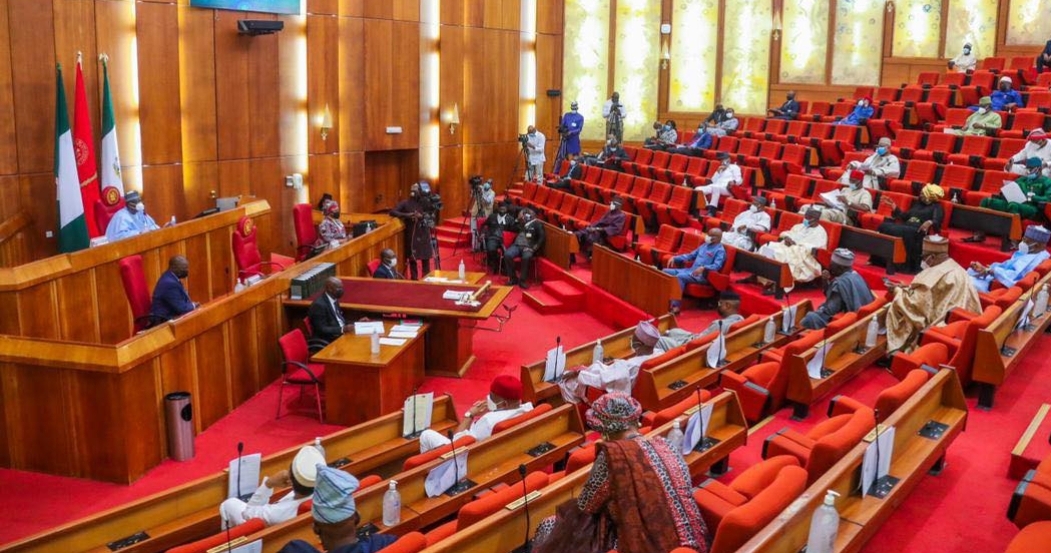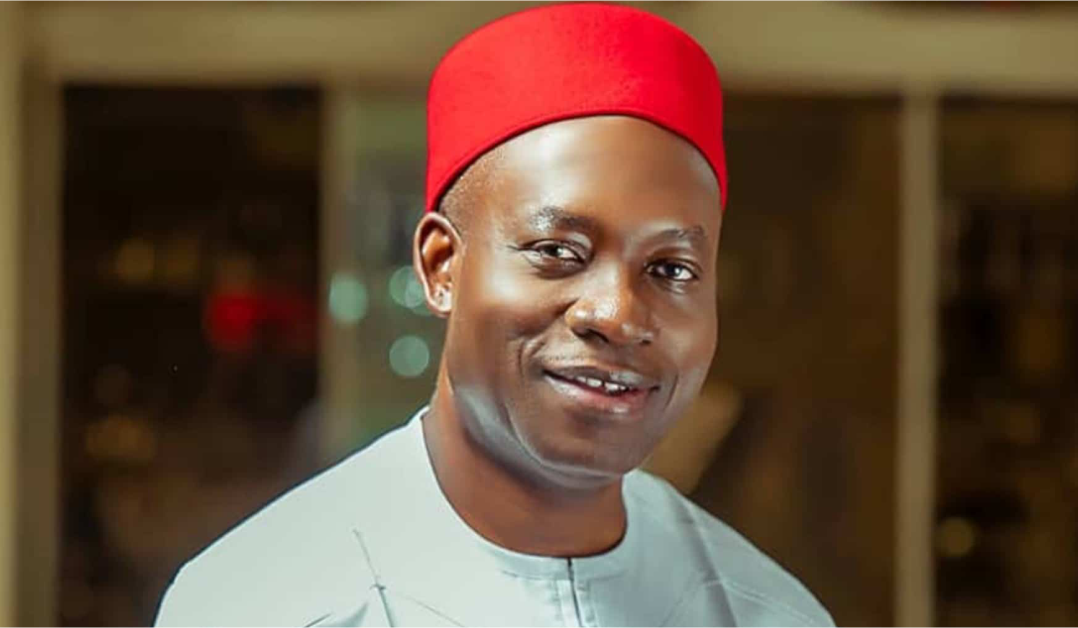If Nigerian judges are so poorly paid, why are they fixing their kids into judiciary?

It is widely said that Nigerian judges are overworked and grossly underpaid. Senior lawyers have described the conditions of service of judges in the country as “a disgrace”. So poor indeed is their remuneration that in October 2023, the Nigerian Bar Association (NBA) doorstepped the federal government asking that the salaries of judges in the country be increased by at least 300%. But some lawyers think this is even too low.
Judicial salaries, it is said, have depreciated to nothing since they were last reviewed in 2008. Since then, allegations of judicial corruption appear to have escalated almost in inverse proportion to the loss in value of judicial pay, leading to suggestions of correlation, if not causation, between the state of judicial remuneration on the one hand and judicial corruption on the other.
Gani Fawehinmi, a senior advocate of Nigeria (SAN), who died in 2009, in fact linked this to judicial mortality, lamenting the fact that many Nigerian judges “die in office under circumstances that are related to the barbaric conditions in which they work.”
Every president since Goodluck Jonathan has promised to address this situation without, in fact, doing anything about it. In his first three months in office, the current incumbent, Bola Ahmed Tinubu, has — like his recent predecessors — repeated the promise.
Unwilling to wait any longer for politicians whose promises are notoriously fickle, the judges appear to have decided to resort to self-help. On May 4, 2022, Osatohanmwen Obaseki-Osaghae, a judge of the National Industrial Court of Nigeria, issued a judgment declaring that “since 2008 is embarrassingly too low and unrealistic, given the current socio-economic and other realities existing in Nigeria and the current global comparative salaries and allowances paid to Judicial Officers of the same or similar cadre.”
She ordered the government to institute a new remuneration structure that would guarantee minimum salaries ranging from N84 million per annum for judges of customary courts of appeal, khadis of Sharia courts of appeal and of the various high courts in the country to at least N120 million per annum for the chief justice of Nigeria.
In reaching this judgment, the judge reasoned that “the downturn in the economy and devaluation of the Naira has completely eroded its purchasing power since 2008”. She claimed that in the 14-year period between the last review of judges’ salaries in 2008 and the judgment in 2022, the exchange rate of the naira to the dollar had depreciated in value from N117.74 to N415.83.
Among the many problems with it, the orders in this judgment were directed at institutions in the executive and legislative arms of the federal government, including the National Assembly; the Revenue Mobilisation, Allocation and Fiscal Commission (RMAFC); the Attorney-General of the Federation; and the National Judicial Council, (NJC). Preoccupied very much with the politics of elections since then, these agencies did not appear to have taken note of the judgment since it was handed down.
Stuck for options, it seems the higher-ups in the judicial hierarchy decided in the interim to sort themselves out by dealing with judicial appointments in a manner that entirely unravels their claims about judicial salaries. At face value, the widespread complaints about judicial salaries in Nigeria totally denude the office of a judge of much respect or appeal, or so most rational people would think. Surely, few parents would want to inflict on their much-loved children a job in which the remuneration and conditions are described in the form of expressions routinely used to describe judicial conditions of service in Nigeria.
Yet, despite all the complaints, the senior-most judges in the Nigerian judiciary have “turned the judiciary into premium job racket for family members.” The latest advertisement for this trend is — not for the first time — the recruitment into the High Court of the Federal Capital Territory (FCT). At the end of January 2024, the Chief Judge of the FCT High Court Husseini Baba-Yusuf, who comes from Kogi State, having secured permission from the NJC, requested nomination of suitable candidates to fill 12 judicial vacancies in his court. The request specifically named the states from which it sought candidates. These are: Bauchi, Bayelsa, Enugu, Imo, Kogi, Kwara, Lagos, Oyo, Plateau, Rivers, Taraba, and Zamfara
Kogi, Bauchi, and Oyo States, which were invited to send forward candidates, are already well represented on the bench of the FCT High Court. They just happen to be the states of origin of the chief judge of the FCT High Court; of the immediate past CJN, and of the incumbent CJN. The chief judge of the FCT runs the court system and will shepherd the nominations through the NJC, where the CJN holds sway. What better way to guarantee safe passage of the preferred nominees of the FCT chief judge than by sweetening it with a candidate allocated specifically to the CJN?
So, of the 12 slots on the list, it appears three are already spoken for, with one daughter or daughter-in-law of the CJN, his predecessor and the chief judge of the FCT apparently guaranteed seats on the list of appointees.
For senior judicial figures, the opportunity to plant a child on the bench as a parting gift has become something of a ritual, with judicial appointments timed to coincide with high-profile judicial retirements. For those who were unable to accomplish generational replacement for themselves on the bench before their retirement, arrangements are made to retrospectively cure the oversight.
Hence, for instance, the proposal to translate a daughter of the immediate past CJN, herself currently a relatively junior magistrate in the service of the FCT judiciary, to the high court bench.
This facility is also used to build bridges with political heavyweights. As he was about to retire at the end of his eight-year term as governor of Kogi State, Yahaya Bello, immediate past governor of Kogi State, got the magnificent gift of a judicial nomination for his beloved wife, Amina, to become a judge of the High Court of Kogi State. Her only qualification for this nomination, apart from having notionally been a lawyer for up to 10 years, is that she is the wife of the state governor.
Madam Amina is not a magistrate, a court registrar, an academic or a legal practitioner. But that did not stop the Kogi State Judicial Service Commission, headed by Chief Judge Josiah Majebi, from turning her judicial nomination into a parting gift for her husband. After leading SANs from the state sued the NJC, accusing it of blithely disrespecting its own rules in the Kogi State nominations, the NJC was forced to suspend the process of High Court appointments in Kogi.
It is not only children and spouses of judicial and political higher-ups who get planted into judicial sinecures in this way. Mistresses and other partners whose only qualification is intimate genital relations with people connected with politics or judicial appointments routinely get nominated too. This is not merely a debasement of high judicial office and the vocation of the judiciary or a clear violation of the Judicial Code of Conduct; it also is a very clear rebuttal of the case for improvement in judicial salaries.
Therefore, one may ask: if the job is so poorly remunerated, as they would have us believe, why would a sane and highly placed parent choose to hose-in their child into a dead-end position guaranteed to blight their lives over the course of a tenure that could last over 35 years?
There can only be two possible reasons. One is that the parent wishes the child ill. This is most improbable. The other is that the office of the judge has become so corrupt that the gazetted remuneration really counts for nothing. In the words of an infamous proverb from Conakry, once the child gets into the position, they will follow in the footsteps of their parent or paramour and feed off the fertile offerings within the perimeter of the judicial leash. If that is so, we may ask, why bother?
A lawyer and a teacher, Odinkalu can be reached at chidi.odinkalu@tufts.edu
We have recently deactivated our website's comment provider in favour of other channels of distribution and commentary. We encourage you to join the conversation on our stories via our Facebook, Twitter and other social media pages.
More from Peoples Gazette

Politics
Katsina youths pledge to deliver over 2 million votes to Atiku
“Katsina State is Atiku’s political base because it is his second home.”

NationWide
National Assembly to organise summit on aviation sector
He said that the summit would address challenges in the aviation sector to proffer solutions to them.

NationWide
CDS Musa calls for stronger military, NIA collaboration to tackle insecurity
The CDS commended the NIA boss for his exemplary leadership and commitment to national service.

NationWide
Don’t give up on Nigeria, Fayemi begs citizens
“The task of nation-building is not a one-off or static exercise, but is rather a dynamic and permanent work in progress.”

States
Workers are hungry; reinstate wage award: Anambra TUC tells Gov. Soludo
Mr Ogbonna said that both the state and the federal governments need to hasten the process of workers’ salary adjustment.

Heading 4
Lagos police identify officer who shot man dead at fuel station
“Investigation is still ongoing and further findings will be made available, ” he said.

Anti-Corruption
Kano govt. nabs three senior officials for collecting bribes to secure citizenship for illegal migrants
“We will keep interrogating them and at the end, if found wanting, they will be prosecuted.”








